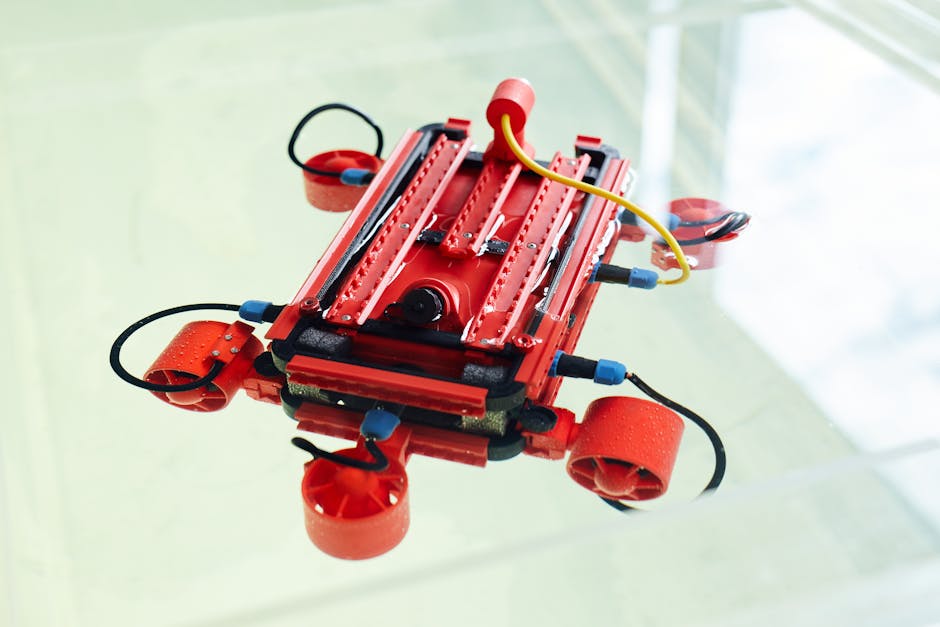Looking ahead, there are several technologies that we know will play an important role in our lives in the coming years. Some seem far-fetched at this moment, but have strong momentum as they gain popularity. Others, while not necessarily obscure, remain limited to use cases where they’re already in wide use.
The way people interact with technology is constantly evolving, so what works now may not work in two or three years. With that in mind, here are seven emerging technologies you can expect to see more of soon.
Ubiquitous computing

Photo by cottonbro studio on Pexels
Short for ubiquitous intelligent systems, this term was coined back in 1994 by MIT professor Ted Jansen. Since then, it has gathered steam and seen some practical applications.
With advances in computer vision, voice recognition software, and touch screens, using computers becomes less of a hassle. Technology moves beyond being an appliance to become integrated into every aspect of your life.
This is sometimes referred to as “ambient intelligence,” because even without user input, computers quickly pick up information and apply logic to determine how to handle it.
It’s no surprise then that many believe we’ll one day find ourselves interacting with digital devices just through speech or body language alone. A lot of these concepts exist already, but none combine them all together yet. That seems like something we’ll be waiting for!
Human Brain Simulations Could Become Possible

The term ‘human brain simulation’ may sound like something out of a science fiction movie, but it is actually closer to happening than you might think! In fact, some scientists are working hard to make this happen, and they claim that we are now at a stage where it is possible to run simulations of the human mind in software.
There have been several theories about what makes us intelligent, with most focusing on how our brains process information and learn new things. Some believe that it is having lots of neurons that make us smart, while others suggest that being good at taking shortcuts or using patterns helps create smarter thinking.
However, most agree that it is the way we store and retrieve memories that makes the difference between someone who learns by repetition and someone who doesn’t. This is why some researchers consider whether storing memory data digitally or via analogues (similarly stored materials) can improve intelligence.
If these studies prove successful, there could be significant benefits for individuals, society, and even future generations. We would all be more efficient at learning and recalling knowledge, which could mean better jobs, improved academic performance, and possibly self-teaching skills that are beyond current technology.
It is important to note that although computer programs currently exist that simulate simple aspects of the physical brain, no one has yet created a program that simulates the whole thing.
A Billion Human Genomes Will Be Sequenced

We are now in what many consider to be The Golden Age of DNA sequencing. Companies such as 23andMe, Ancestry, Family Tree, Pathway, and Navigenics have made it possible for anyone with access to the internet to sequence their own genome for very little money!
By having your genetic information we can learn about you and how genetics impacts health and wellness. It is also important to note that some companies offer more comprehensive genomes than others so do not assume every company has the same level of detail available.
Overall this is an incredible opportunity because now anyone with a smartphone can experiment with personal genomics! There are still things we cannot do without knowing someone’s exact gene sequences but once those are known we can work towards improving ones medical condition or diagnosing disease risk.
We already know that our genes influence our physical appearance, behavior, and overall health. With these new technologies it is becoming easier to determine if there are any changes to our genetic makeup due to something external like environmental exposure or nutrition,or if there are modifications due to internal factors like stress, illness, or drug use. This is especially helpful when trying to diagnose diseases and identify potential causes.
The First Version Of The Quantum Internet Could Emerge

Recent developments in quantum technology could prove to be very interesting for those looking to secure their privacy, as well as individuals who want to explore new ways to connect with others. Technology that utilizes quantum particles can go beyond what current systems are capable of, creating newer, more powerful tools.
There is an ongoing discussion about whether or not we are at the cusp of a “quantum era” where computers operate using principles different than today’s silicon-based transistors. Some believe that this transition is happening now, while others say it will take longer until people come to accept these changes.
Whatever form the future takes, one thing is certain — digital information stored and transmitted as 0′s and 1′s will no longer be reliable. Current technologies use the laws of physics to function, but researchers are also exploring alternatives that don’t require such fundamental processes.
Here are seven examples of how quantum technology might soon become mainstream.
SpaceX's 1st Crewed Mars Mission Will Be Successful

Elon Musk, CEO of Tesla and SpaceX, has said many times that his ultimate goal is to send humans to Mars. He has also mentioned how important it is for us to continue moving beyond our own planet as we have done countless times before.
In an interview with Business Insider in May 2018, he discussed why this will be such a monumental event for humanity. According to him, it is because we are a species that moves around and explores new places so easily that it shapes who we are as people.
He believes that by traveling to other planets, not only do we expand our knowledge, but we also inspire others to explore their surroundings as well.
By doing these things, we show courage, confidence, and bravery, just like Christopher Columbus did more than 500 years ago. He took the risk of exploring unknown lands due to his desire to learn more about ourselves as human beings.
At the time, there were no computers nor cell phones, which makes his feat even more impressive.
Artificial Brain Implants Will Restore Lost Memories

A new, very popular theory about memory is that we don’t actually need to learn something completely before we can call it “memory.” We create our own memories through repeated interactions with things and people.
By this definition, watching a movie is not really learning anything because you have seen the movie many times already. Yet, you still know what happens next!
This doesn’t mean your brain does not retain some information after you have watched the movie. It does! But you have subconsciously picked up bits of what happened in the movie during all those repeat viewings.
If someone told you they would pay you $1 million dollars for one minute of your time, I am sure you would agree to do so! The way their mind works makes them believe that there could be an opportunity to make money soon.
That possibility alone is enough to keep them interested in the job until the 1 minute has passed. That is why they ask you to do the job; they want your help creating an illusion that there is chance to earn more money.
We humans are creative like this. Sometimes we can apply that creativity towards helping others. For example, if someone close to you lost a loved one then you might find it helpful to talk about how they departed from life.
You can also tell yourself fake stories to help you feel better about things or to give you confidence.
3D-Printed Human Organs Will Begin Being Used

We are now at a place where we can truly say that technology has gone beyond imagination. Recent developments have brought us to the brink of being able to print human organs! This is no longer science fiction, this is real life innovation.
We’ve seen it with printing fabric, bed sheets, and even leather jackets; why not printed whole organ systems? The possibilities for these new technologies are almost limitless.
A company called Organovo designed and created their own line of bionic organs using a process they call “bioprinting.” They use living cells to create an artificial structure which then gets replaced by natural ones.
Their first bioprinted tissue was constructed from live epithelial skin cells and oral mucosa (lining your mouth) cells. Since then, they have printed bones, cartilage, muscle, blood vessels, and more.
They also recently released the world’s first ever functional heart valve made out of biocompatible plastic! While this may sound scary, the material used is already available in our everyday lives. It’s actually something most people have touched hundreds if not thousands times!
This doesn’t mean you have to go through with the procedure though, as many companies offer alternative treatments or supplements instead.
The First Quantum Computers With 1 Million Qubits Will Emerge

In 2018, we are already at the second largest scale of quantum computers that have been manufactured. These systems typically contain around 20-30 qubits, or quantized units to store information.
We’ve seen some incredible applications for these smaller sized devices, such as solving certain types of large optimization problems in computer science, and helping researchers study new materials through computational means.
However, it is very difficult to find a device with more than 30 qubits that works properly. Manufacturers run into many issues when trying to cool down their machines, which is one of the most important parts of any quantum computing machine.
The cooling process requires liquid helium, but it will only work if you can get enough flow going. Unfortunately, as the size of the system grows, there comes a limit to how much liquid helium you can fit inside.
This makes larger systems impossible to use unless you have access to extremely expensive facilities that keep lots of liquid helium on hand. This is not feasible even for most research labs due to the cost.
What this means is that we will probably see the first true “quantum supercomputer” built within the next few years. A lab or company will spend the money necessary to build a 40–100 qubit computer that works reliably.
Conclusion
This article has discussed seven future technologies that will help you live a more productive, efficient, and meaningful life. These include self-driving cars, human-computer interaction, digital health records, biometric authentication, cryptocurrency, virtual/augmented reality, and quantum computing.
While some of these concepts are still in their early stages of development, we can be certain they will continue to have an ever-growing impact on our lives. If you want to stay up-to-date with all things tech, it is important to remain aware of what is happening now and what people are talking about for the future.
By staying informed, you’ll get the most out of technology from either directly by using products that use these technologies or through lessons learned from others who enjoy them.
We would also recommend reading our other articles related to this topic to get additional tips and tricks.



